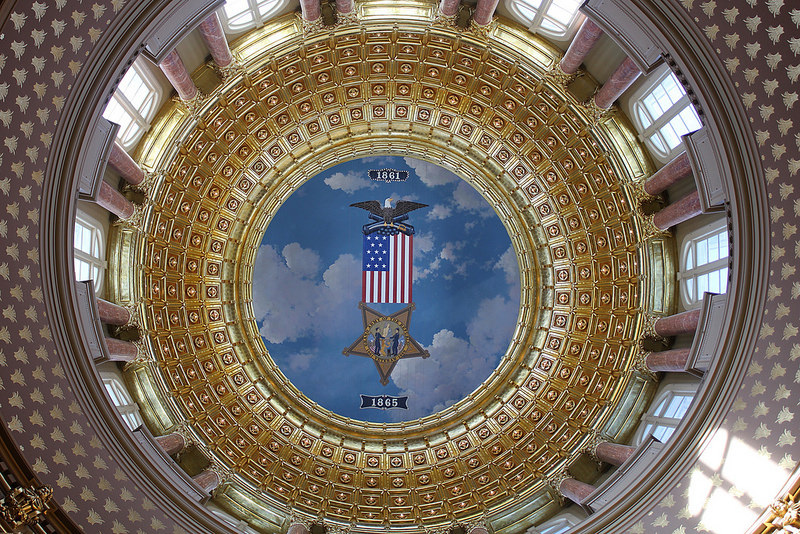| Listening to some Utah lawmakers, you get the impression kids today are more ignorant than ever before of U.S. history and the way government works. If only things were as when today’s adults were children, voters would be informed and the future of the republic would be bright. That’s how you remember the good ol’ days, right? So while it sounds suspiciously like something the Common Core would require, conservatives now |
| | are rallying behind a requirement for students to pass a civics test before graduating from high school. Try not to think too hard about philosophical purity, here. Life is full of ironies. Which is not to say state Sen. Howard Stephenson, R-Draper, is wrong to want every 12th grader to know the three branches of government and how many people are on the U.S. Supreme Court, among other things, before being sent into the world as a certified U.S. high school graduate. It’s hard to argue with him when he talks about the dangers of the “civically illiterate” casting ballots that determine our future. Ignorant voters easily can be led into dark alleys where the Constitution gets mugged. It is to say, however, that ignorance is hardly a modern invention. In fact, you could argue it is a time-honored part of the nation’s fabric. It was a problem even with the “greatest generation” when it faced its greatest challenge. “The fact that only a fraction of 1 percent of adult students in New York City attend classes in American history is one reason for our many unsolved problems of total effort, indifference to war aims and so on,” wrote Winifred Fisher, director of the New York Adult Education Council. She published this as part of an op-ed titled “Few adults know history” in The New York Times in 1942. That was the year the Times published a report showing America’s colleges and universities were, for the most part, neglecting the study of American history, imperiling the nation’s future. It has been said, jokingly, that America goes to war from time to time so that its citizens may learn geography and future generations will have more history of which to be ignorant. As with all good humor, a kernel of truth germinates the laughter. That generation learned quickly where to find places such as Okinawa, Normandy and Guadalcanal, but there was nothing funny about it, nor about the sacrifices that made their efforts another chapter in U.S. history for future students to struggle to learn. Eleven years after Fisher’s lament, Pendleton Herring, president of the American Political Science Association, spoke out against the “malarkeyism” that was feeding a red scare from coast to coast. There were indeed communist spies at work, but McCarthyism forged ahead recklessly and without much regard for evidence, fueled by public fear and a general ignorance of history and due process. In the same story, the Times paraphrased the Lebanese ambassador to the U.S. as saying he believed self-government, “the fundamental assumption of American democracy, was no longer an adequate basis for conduct of the country’s affairs” in such a dangerous age. He was wrong. Somehow, despite the widespread ignorance and the unfair mob mentality that flares from time to time, American self-government has thrived in the 62 years since. Public ignorance is no reason to revoke self-government. But that is no reason to celebrate ignorance. Stephenson’s bill, SB60, is not intended to add to the considerable burden lawmakers have heaped on teachers through the years. It would, however, burden high school seniors who would have to pass a quiz similar to what new U.S. citizens endure, although they could take it over and over until they succeed. Utah is one of several states considering such a law. USNews.com says it originated with the Civics Education Initiative and is backed by luminaries as diverse as former Supreme Court Justice Sandra Day O’Connor and journalist Carl Bernstein. I admire the effort. The concepts behind freedom are indeed vital, even if history itself teaches that, for many, the civics lessons will stay in the brain about as long as high school French. |


 RSS Feed
RSS Feed

